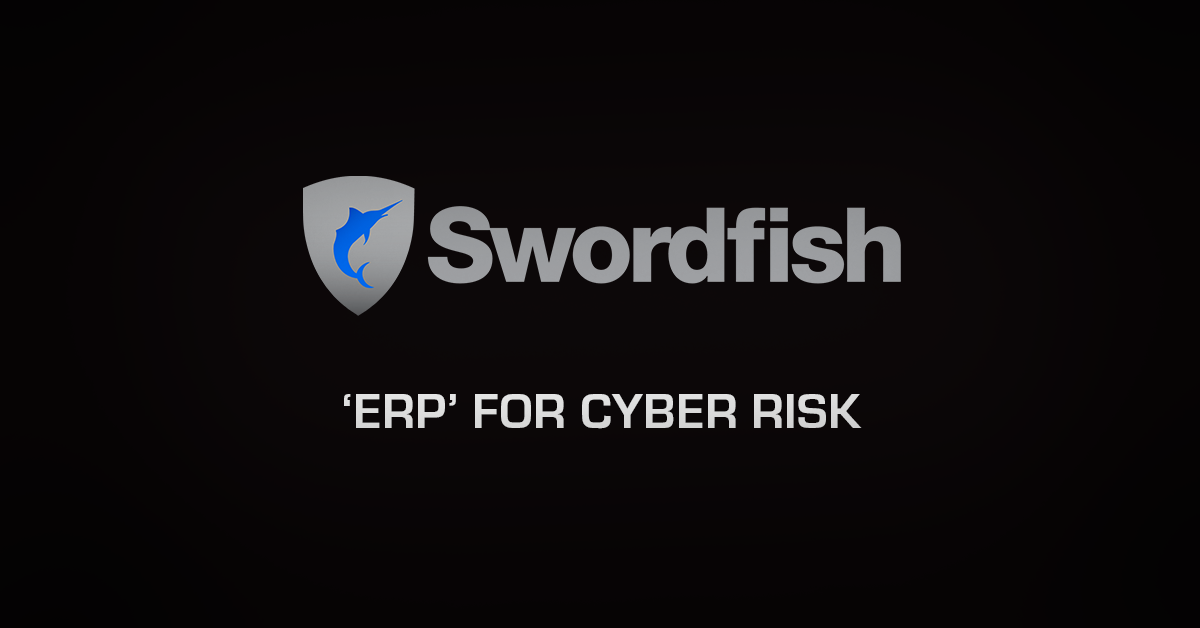
OVERVIEW
In today’s interconnected global marketplace, supply chain risk management and security are essential. SWORDFISH Supply Chain Risk Management Security Services focus on the integrity and resilience of your supply chain. By examining security processes and practices across suppliers, MRC for Supply Chain helps mitigate risk, protect sensitive information, and sustain operations.

WHY MRC FOR SUPPLY CHAIN
Central to the service is the SWORDFISH Supply Chain Security module – a hub for cyber supply chain risk management and two-way information exchange with vendors. The platform coordinates assessments, communications, and logistics, then analyzes current security practices against audit requirements to produce actionable findings and remediation tasks.

EXPERTISE
Our team maps your supply chain’s current security posture, highlights gaps, and recommends corrective actions based on material findings. The module supports dynamic questionnaires, criticality mapping, remediation tracking, and configurable dashboards to give clear visibility across third parties.

COMPLIANCE CONTROLS
Cyber Supply chain risk management often spans legal, regulatory and contractual obligations. MRC for Supply Chain identifies relevant requirements and maps them to specific controls and responsible owners, helping you demonstrate conformance with frameworks such as NIS2, DORA, ISO/IEC 27036 and GDPR Article 28. NIS2 entered into force on January 16, 2023 with expanded risk management and reporting requirements across 18 sectors, while DORA has applied to EU financial entities since January 17, 2025. (Source: ENISA) (Source: European Commission) (Source: CSSF) (Source: ISO/IEC 27036-1:2021) (Source: ICO guidance on Article 28)

TAILORED SOLUTIONS FOR UNIQUE SUPPLY CHAIN SECURITY
Every supply chain is different. MRC for Supply Chain aligns assessments and remediation to your business structure and objectives, with flexible workflows for vendor engagement, periodic reassessment, and evidence collection. The approach also aligns to UK NCSC supplier assurance guidance for procurement and ongoing oversight. (Source: GOV.UK – Supplier Assurance/NCSC)

RESILIENCE
MRC for Supply Chain supports resilience by linking third-party risks, controls, and business impact. SWORDFISH modules provide risk and exposure context – including dynamic threat score and business impact based on asset criticality – so teams can prioritize remediation that protects critical services. (Source: Obrela – Exposure Management) (Source: Obrela – Cyber Risk Management)

OUTSOURCED EXCELLENCE
For organizations that want ongoing assistance, Obrela delivers managed services that combine platform automation with expert advisory. SWORDFISH integrates with MDR and XDR operations, including Microsoft Defender XDR and Microsoft Sentinel, to connect risk management with live detection and response when needed. (Source: Obrela MDR for Microsoft)

BUSINESS CONTINUITY
MRC for Supply Chain feeds into broader resilience and continuity planning. SWORDFISH Cyber Resilience Management operationalizes business impact analysis aligned to ISO 22301 and tracks third-party dependencies, supporting continuity decisions and recovery planning. (Source: Obrela – Cyber Resilience Management Module)


MRC FOR SUPPLY CHAIN DATASHEET
Access the datasheet and learn more.

FAQs
Supply chain risk management (SCRM) in cybersecurity addresses risks from third-party vendors, partners and digital dependencies. It is critical because attackers increasingly exploit weaker links in extended ecosystems, and research shows 98% of organizations are connected to at least one third party that experienced a breach in the past two years. (Source: Cybersecurity Dive summarizing SecurityScorecard & Cyentia)
- Operational risk – disruptions in day-to-day processes.
- Financial risk – cost increases, fraud or vendor insolvency.
- Reputational risk – loss of trust from customers due to failures or breaches.
- Cybersecurity risk – vulnerabilities in suppliers’ networks, systems or software.
- Regulatory/compliance risk – non-adherence to laws like GDPR, NIS2 or DORA. (Source: ENISA) (Source: CSSF)
- Geopolitical risk – instability, sanctions or trade restrictions.
It proactively identifies risks, monitors suppliers and implements contingency plans. This reduces single points of failure and supports business continuity during cyberattacks, natural disasters or supplier insolvency. UK NCSC-aligned supplier assurance practices further strengthen oversight. (Source: GOV.UK – Supplier Assurance/NCSC)
Typical stages include:
- Risk identification – mapping vendors and dependencies.
- Risk assessment – scoring threats by likelihood and impact.
- Risk mitigation – applying controls, redundancy and monitoring.
- Continuous monitoring – detecting new vulnerabilities and threats in real time.
- Response & recovery – activating incident response and continuity plans. Guidance from NIST SP 800-161r1 provides additional structure for C-SCRM programs. (Source: NIST SP 800-161r1-upd1)
- Real-time monitoring of suppliers and threats.
- Centralized vendor risk data.
- Automated assessments and compliance checks.
- Predictive analytics for early warning.
- Faster incident response and reduced disruption. SWORDFISH capabilities include questionnaires, criticality mapping, remediation tracking and configurable dashboards. (Source: Obrela)
It builds redundancy, transparency, and agility so organizations can withstand disruptions, recover faster and maintain trust with stakeholders. BIA-driven planning and supplier dependency mapping in SWORDFISH support resilient operations. (Source: Obrela – Cyber Resilience Management Module)
Cyber SCRM focuses on digital risks within the supply chain such as compromised updates, vulnerable third-party applications or insecure partners. The prevalence of third-party compromise makes continuous monitoring a priority across regions including the UK and EU. (Source: Cybersecurity Dive summarizing SecurityScorecard & Cyentia) (Source: GOV.UK – Supplier Assurance/NCSC)
- Performing third-party security audits.
- Using continuous vendor monitoring platforms.
- Segmenting networks to isolate vendor access.
- Vetting software updates (e.g., protection against SolarWinds-type attacks).
- Diversifying suppliers to avoid over-reliance. NIST SP 800-161r1 provides detailed practices for governance, risk assessment and controls across the supplier lifecycle. (Source: NIST SP 800-161r1-upd1)
- Adopt a risk-based approach aligned with ISO 27036 or NIST guidance.
- Map all suppliers and dependencies.
- Conduct due diligence and regular risk assessments.
- Establish clear contracts and SLAs with vendors.
- Use automated monitoring and threat intelligence.
- Regularly test and update continuity plans. (Source: ISO/IEC 27036-1:2021) (Source: NIST SP 800-161r1-upd1)
They help evaluate supplier security posture, identify weak points, track compliance and enforce corrective actions, reducing the chance a third party becomes an entry point for attackers. SWORDFISH supports questionnaires, remediation workflows and reporting to operationalize this. (Source: Obrela)
They provide:
- Continuous scanning for vulnerabilities.
- Alerts on compromised vendors or data breaches.
- Predictive threat intelligence.
- Automated compliance scoring.
- Dashboards for risk visibility across partners. SWORDFISH integrates risk analytics and exposure views to prioritize action by business impact. (Source: Obrela – Cyber Risk Management) (Source: Obrela – Exposure Management)
Regulators, customers and investors expect organizations to manage the security of their extended ecosystem. NIS2 expands obligations across sectors and DORA applies from January 17, 2025 to EU financial entities, increasing focus on third-party oversight and reporting. (Source: European Commission) (Source: CSSF)
- Zero-trust principles for vendor access.
- Continuous monitoring of third parties.
- Strong vendor onboarding and offboarding processes.
- Cyber insurance considerations.
- Incident response coordination with suppliers. UK NCSC-aligned supplier assurance questions support onboarding, oversight and audit. (Source: GOV.UK – Supplier Assurance/NCSC)
It verifies, tests and monitors software components, updates and dependencies to prevent insertion of malicious code or backdoors. NIST SP 800-161r1 includes guidance for software supply chain security and lifecycle controls. (Source: NIST SP 800-161r1-upd1) (Source: ISO/IEC 27036-3:2023)
- Supplier onboarding and scoring.
- Continuous risk monitoring.
- Threat intelligence integration.
- Compliance mapping (NIS2, DORA, ISO, etc.).
- Reporting and analytics.
- Incident management workflows. SWORDFISH provides these capabilities via MRC modules and integrations. (Source: Obrela) (Source: Obrela – Swordfish for MRC)
- Better visibility into vendor vulnerabilities.
- Faster response to third-party incidents.
- Reduced regulatory penalties.
- Improved trust with customers and stakeholders. Audit requirements for controller-processor contracts also expect suppliers to support evidence and inspections. (Source: ICO guidance on Article 28)
- Coverage of both operational and cyber risks.
- Real-time monitoring and analytics.
- Integration with threat intelligence.
- Strong reporting and compliance support.
- Scalable to global supplier networks. SWORDFISH offers centralized views across suppliers with configurable dashboards and reports. (Source: Obrela)
Obrela’s MRC for Supply Chain continuously monitors third-party risks, integrates threat intelligence, and aligns to compliance frameworks. It turns risk data into corrective actions through platform workflows plus expert advisory, and integrates with MDR/XDR and SIEM/SOAR when required. (Source: Obrela solution page) (Source: Obrela MDR for Microsoft)
- Holistic approach – combines cybersecurity, operational and compliance risk through platform automation plus advisory.
- Ensuring Supply Chain Integrity – detailed assessment of processes and practices.
- Continuous monitoring – not just point-in-time assessments.
- Risk-to-Value mapping – prioritizes by business impact using risk and exposure analytics.
- Global visibility – real-time dashboards across suppliers.
- Integration with MDR/XDR services – bridges risk management with live detection. (Source: Obrela) (Source: Obrela – Exposure Management) (Source: Obrela – Cyber Risk Management) (Source: Obrela MDR for Microsoft)










